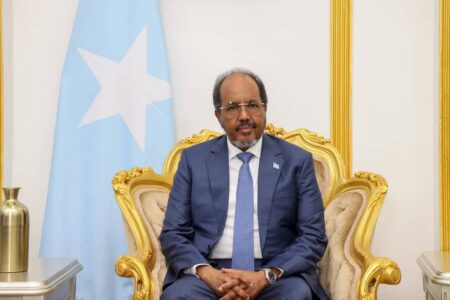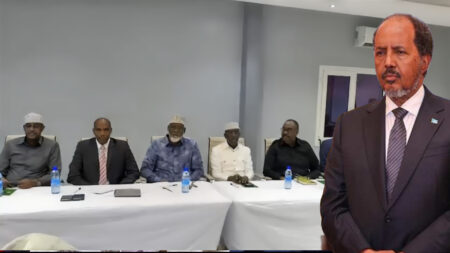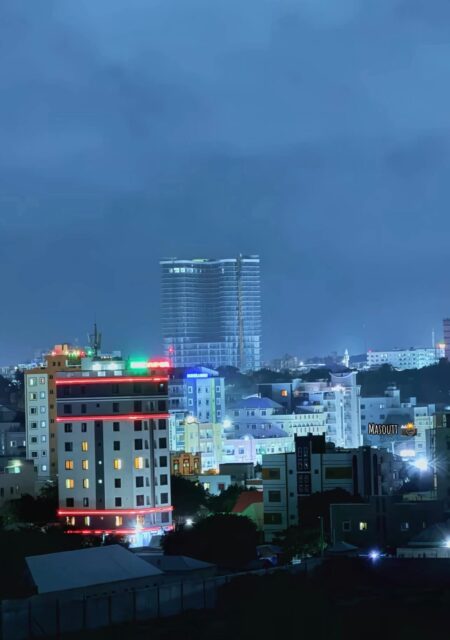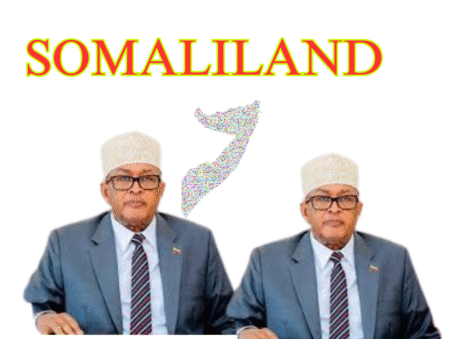End the Carousel: Somalia Must Reject Recycled Leaders and Embrace the People’s Vot
Somalia stands at a crossroads. For decades, the country has been ensnared in a cycle of recycled leadership, wherein the same political figures return to power, clinging to their positions through indirect means rather than popular legitimacy. These former presidents, prime ministers, ministers, and parliamentary speakers do not offer a new vision; instead, they safeguard outdated privileges.

The indirect electoral system, governed by clan delegates and backroom negotiations, has long been the gateway for this elite class. It has stripped the Somali people of their voice and enabled those who have failed in office to resurface, unchallenged and unaccountable.
In 2021, this dangerous cycle nearly shattered the country. Then-Speaker of Parliament Mohamed Mursal, alongside allies of President Mohamed Abdullahi Farmaajo, pushed through an unlawful term extension. This action plunged the nation into a political crisis and brought Mogadishu to the brink of armed conflict. Only overwhelming public pressure and international intervention managed to reverse the damage.
This wasn’t the first time recycled leadership brought Somalia to crisis.
In 2009, a Memorandum of Understanding signed with Kenya threatened Somalia’s maritime sovereignty. The agreement, signed by then-Minister Abdirahman Abdishakur and Prime Minister Omar Abdirashid Sharmarke, provoked outrage. When questioned, then-President Sheikh Sharif Ahmed disclaimed all knowledge, passing responsibility to others. The country spent years and millions of dollars defending itself at the International Court of Justice.
President Dr Hassan Sheikh Mohamud took that case to court during his first term. He defended Somalia’s territorial waters when others had nearly signed them away.
Again, These figures attempt to derail the country’s only path forward: universal suffrage. However, what makes this moment even more damning is the memory of the 2022 presidential campaign. Each one of these recycled leaders stood on public platforms and pledged that if elected, they would implement one person, one vote and finalise the draft constitution.
Today, those very exact figures oppose both. The question is simple: were they lying then, or are they wrong now? Either they lacked sincerity in their pledges, or they now lack faith in the people they once sought to represent.
The so-called “rising political tensions” are not fuelled by principle or ideological disagreement. They are driven by politicians who rely on controlling an outdated electoral system. They lack any genuine vision for Somalia’s future. When asked for a development, justice, or governance roadmap, they provide nothing. When questioned about elections, they offer only indirect ones.
These politicians even refer to themselves as “stakeholders”, a self-appointed title with no constitutional basis or electoral mandate. Who elected these “stakeholders”? Who do they represent? They speak only for themselves. Their stake is not in the people; it is in the process that excludes the people.
But Somalia is changing. Mogadishu is more peaceful today than it has been in years. The city is preparing for historic local elections under a one-person, one-vote system, something the public supports and the constitution demands. And President Dr Hassan Sheikh Mohamud is delivering it as a policy and a principle.
This is no longer a debate between individuals; it is a choice between two futures: one of recycled power and indirect rule and another of democratic legitimacy and national dignity. Somalia must decide.
The carousel must stop. The false promises must come to an end.
The people must take the lead.




